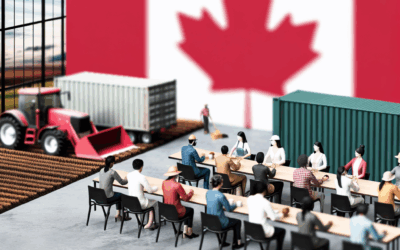Canada’s Economic Counterattack: How Prime Minister Mark Carney is Responding to U.S. Tariffs
In response to recent U.S. tariff impositions, Canadian Prime Minister Mark Carney has implemented a series of strategic measures aimed at safeguarding Canada’s economy and protecting domestic industries. These actions are designed to counteract the economic impact of U.S. tariffs and support Canadian businesses and workers.
On February 1, 2025, the Canadian government announced the introduction of 25% tariffs on $155 billion worth of U.S. goods. The initial phase, effective February 4, targeted $30 billion in imports, including products such as orange juice, peanut butter, wine, spirits, beer, coffee, appliances, apparel, footwear, motorcycles, cosmetics, and pulp and paper. An additional list of goods worth $125 billion was opened for public consultation, with the intention of imposing further tariffs if U.S. measures remained unchanged.
Subsequently, on March 12, 2025, in response to the U.S. imposing 25% tariffs on Canadian steel and aluminum products, Canada enforced reciprocal tariffs on $29.8 billion worth of U.S. imports. This included 25% tariffs on steel and aluminum products, as well as additional goods such as tools, computers, servers, display monitors, sports equipment, and cast-iron products.
To mitigate the adverse effects of these trade disputes, the Canadian government introduced several support measures. The Trade Impact Program, launched through Export Development Canada, allocated $5 billion over two years to assist exporters in accessing new markets and navigating challenges arising from the tariffs. The Business Development Bank of Canada offered $500 million in favourably priced loans to businesses directly affected by the tariffs, including those within the supply chains of impacted sectors.
The agricultural sector received assistance through Farm Credit Canada, which provided $1 billion in new financing to support the agriculture and food industry, addressing cash flow challenges and enabling continued supply of high-quality products. Additionally, the Employment Insurance Work-Sharing Program introduced temporary flexibilities to increase access and extend the duration of agreements, helping employers retain experienced workers and allowing employees to supplement reduced wages with EI benefits.
Prime Minister Carney and his administration have actively engaged in diplomatic efforts to address the trade tensions. This includes consultations with provincial and territorial governments, as well as industry leaders, to present a united front in advocating for the removal of unjustified tariffs. The government has emphasized the detrimental impact of these tariffs on both Canadian and American economies, highlighting the importance of maintaining a fair and mutually beneficial trading relationship.
Despite these proactive measures, the future remains uncertain. The global trade landscape is volatile, and with shifting policies in the U.S. and other major economies, Canada may need to continuously adapt its strategies. The effectiveness of counter-tariffs, financial aid programs, and diplomatic efforts will depend on how trade relations evolve in the coming months. Businesses and workers must prepare for potential disruptions while the government remains committed to protecting Canada’s economic interests.



